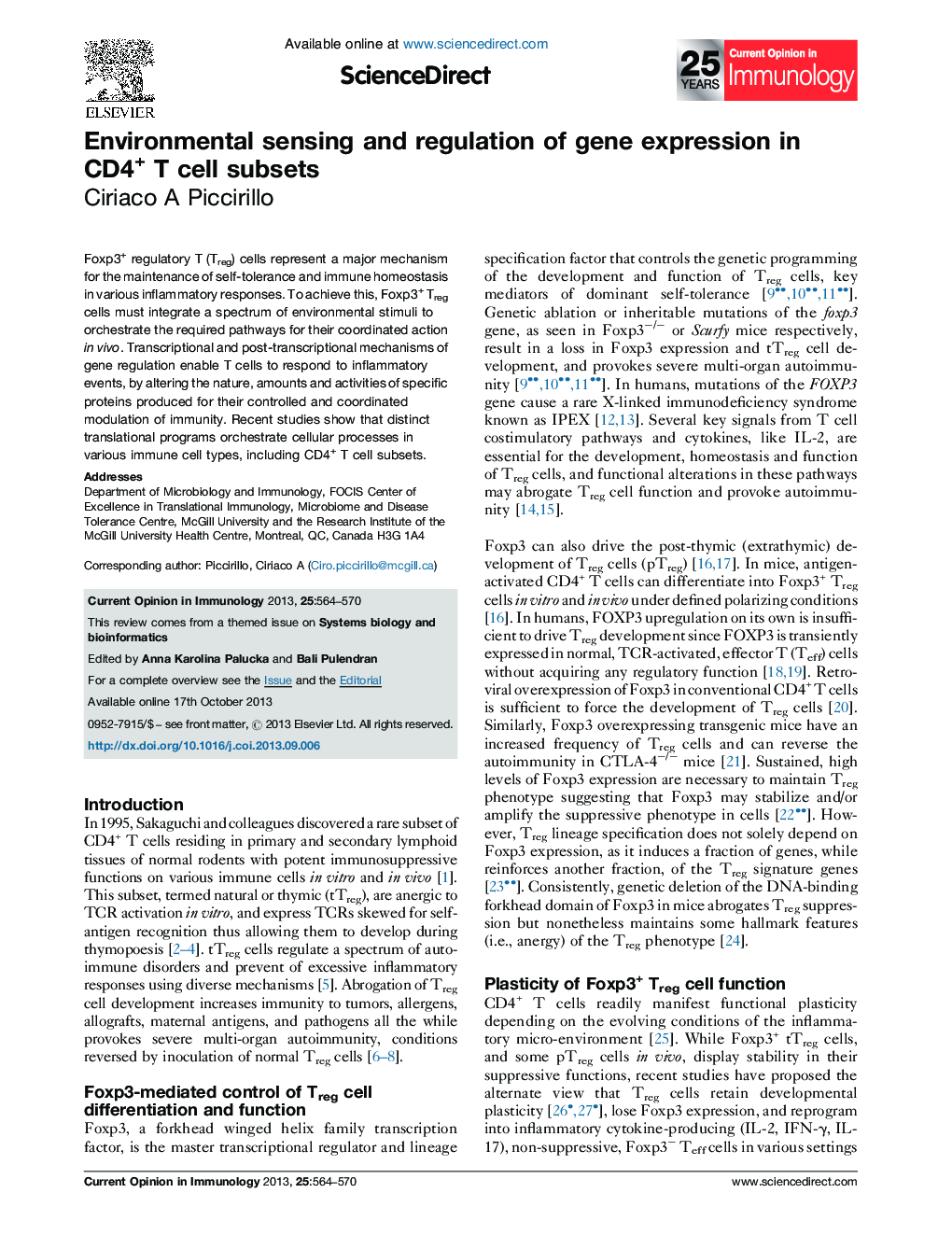| Article ID | Journal | Published Year | Pages | File Type |
|---|---|---|---|---|
| 3345823 | Current Opinion in Immunology | 2013 | 7 Pages |
•Foxp3+ Treg cells must integrate a spectrum of environmental stimuli to orchestrate the required pathways for their coordinated action in vivo.•Transcriptional and post-transcriptional mechanisms of gene regulation enable T cells to respond to inflammatory events, and regulate the modulation of immunity.•Distinct translational programs orchestrate cellular processes in various immune cell types, including CD4+ T cell subsets.
Foxp3+ regulatory T (Treg) cells represent a major mechanism for the maintenance of self-tolerance and immune homeostasis in various inflammatory responses. To achieve this, Foxp3+ Treg cells must integrate a spectrum of environmental stimuli to orchestrate the required pathways for their coordinated action in vivo. Transcriptional and post-transcriptional mechanisms of gene regulation enable T cells to respond to inflammatory events, by altering the nature, amounts and activities of specific proteins produced for their controlled and coordinated modulation of immunity. Recent studies show that distinct translational programs orchestrate cellular processes in various immune cell types, including CD4+ T cell subsets.
